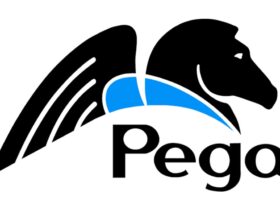Cloud Native Computing Foundation (CNCF), in cooperation with the Linux Foundation, has developed the Certified Kubernetes Administrator program for the development of the Kubernetes environment.
Kubernetes is an open-source container-orchestration system for automating computer applications. To know more about it, scroll down and check out its features, definition, and career aspects. It’s understandable why, since it’s one of the most in-demand skills by businesses of all sizes. Therefore, if you want to acquire a new talent that will serve you well in your career, studying Kubernetes is an excellent choice.
What is Kubernetes?
Kubernetes is a portable, extensible, open-source platform for managing containerized workloads and services, that facilitates both declarative configuration and automation. It has a large, rapidly growing ecosystem. Kubernetes services, support, and tools are widely available.
About Kubernetes
Kubernetes clusters can span hosts across on-premise, public, private, or hybrid clouds. For this reason, Kubernetes is an ideal platform for hosting cloud-native applications that require rapid scaling, like real-time data streaming through Apache Kafka.
Kubernetes was originally developed and designed by engineers at Google. Google was one of the early contributors to Linux container technology and has talked publicly about how everything at Google runs in containers. (This is the technology behind Google’s cloud services.)
Every so often, a significant trend emerges in the field of technology, reshaping the industry’s environment. Multi threading and cloud infrastructure have become examples of the past. At the moment, we’re undergoing a mini-revolution fueled by containerization and serverless computing. (Also occurring concurrently are significant changes in the fields of machine learning and, potentially, blockchain.) However, those are for that day’s conversation.)
Kubernetes fundamentally alters the mechanism of code deployment, enabling the smooth deployment of new updates with no latency. Kubernetes is also a major player in driving the implementation of Multi-Cloud (or Public Clouds) computing, which refers to the ability of the same technology to operate in various settings ranging from the developer’s computer to research servers, on-premise deployments, and Azure/AWS/GCP.
Why Use Kubernetes?
Kubernetes is a portable, extensible, open-source platform for managing containerized workloads and services, that facilitates both declarative configuration and automation. It has a large, rapidly growing ecosystem. Kubernetes services, support, and tools are widely available.
Who uses Kubernetes?
- Google.
- Shopify.
- Slack.
- Robinhood.
- StackShare.
- Delivery Hero.
- Stack.
- Nubank.
Certification for Kubernetes
There are two Kubernetes certifications
- The Certified Kubernetes Administrator (CKA)
- The Certified Kubernetes Application Developer (CKAD).
Features of Kubernetes
- Scalable technology on a horizontal scale: Additional servers may be quickly installed or deleted.
- Auto-scaling: Adjust the number of operating containers depending on CPU consumption or other measurements given by the program.
- Expanding manually: Using a directive or the gui, manual process scale the amount of running containers.
- Kubernetes will monitor and self-heal nodes and warehouses, meaning that the program does not encounter any errors. Additionally, Kubernetes supports self-healing and auto-replacement, which eliminates the need for you to be concerned if a container or pod breaks.
- Routing and load balancing: Routing directs queries to the correct containers. Additionally, Kubernetes has built-in load balancers, which allow you to manage resources in response to outages or spikes in traffic.
- Computerized rollouts and rollbacks: Kubernetes automates the process of rolling out new releases or upgrades when tracking the health of the containers. If the rollout fails, it immediately reverts to the previous state.
Job Responsibilities
- Implement and improve monitoring and alerting.
- Build and maintain highly available systems on Kubernetes.
- Implement and manage CI/CD pipelines.
- Implement an auto-scaling system for our Kubernetes nodes.
- Participate in on-call rotations.
Job Role
- Site reliability engineer
- Infrastructure engineer
- DevOps engineer
- software engineer
- full stack developer.
Top Location for Kubernetes Job
These are the cities you’ll build your career as a Kubernetes
- Bangalore
- Pune
- Mumbai
- Chennai
- Delhi.
Name of the companies hiring for Kubernetes
- ANI Class India
- Accenture
- Hp India
- Mindtree.
Salary packages for Kubernetes Job
The average salary package for Salary packages for Kubernetes is ₹79.8LPA. And the salary varies from Company to Company.
Where and therefore the way we are using this technology in real-time?
Kubernetes can be used to manage microservice architectures and is deployable on most cloud providers.
Does one need basic skills to wish to hunt out about this course
- DOCKER and docker knowledge
- Basic Devops skills, scripting and commands.
Conclusion
Kubernetes is sweeping the globe, and it’s a platform that can help you maximize your career potential while simplifying the entire implementation and development lifecycle, significantly improving your and your team’s lives. If you are a programmer, data analyst, or management consulting, having a working knowledge of Kubernetes can significantly improve your appeal to employers. Indeed, it has the potential to boost your pay by hundreds of thousands of pounds.
What specifically did you learn regarding Containers and Kubernetes today?






Leave a Reply